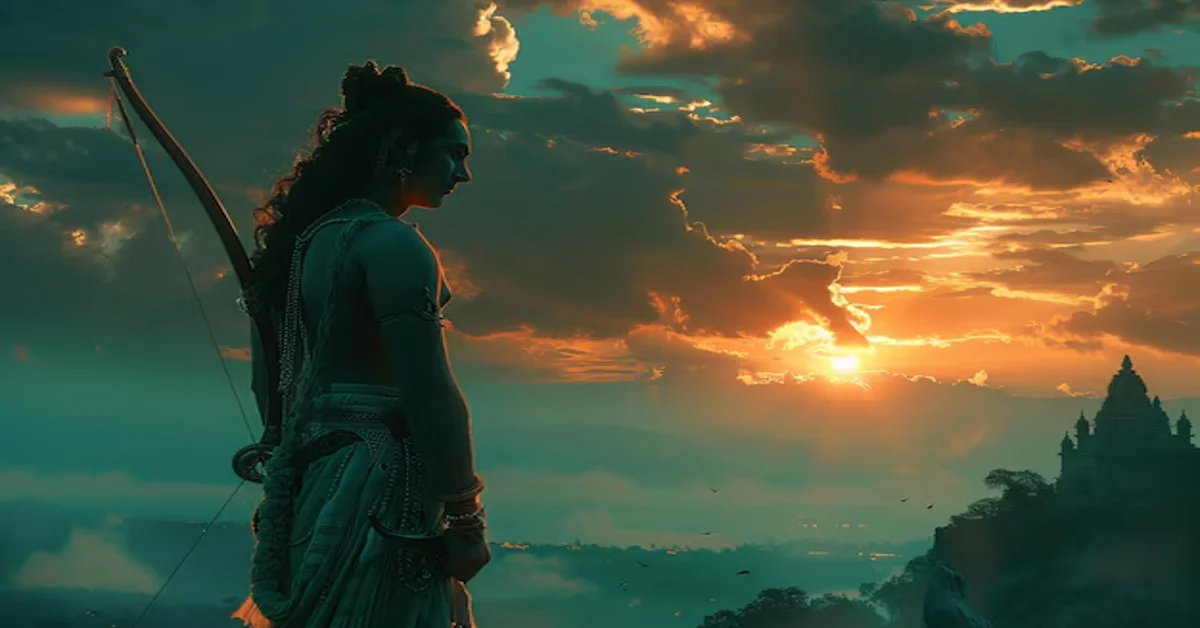Mythology has always captivated our imaginations, weaving tales of gods and goddesses locked in epic battles. At the heart of these stories lies a powerful theme: divine rivals. The tensions between deities shape not only their own destinies but also the fate of mortals caught in their conflict. In exploring these rivalries, we uncover deeper truths about power dynamics, love, and ambition that resonate even today. Join us on this journey through mythology as we delve into “Divine Rivals,” a compelling work by Rebecca Ross that brings legendary clashes to life with vibrant characters and poignant themes.
Overview:
Mythology is a treasure trove of stories filled with complex relationships among deities. These divine rivals often clash, creating epic tales that resonate through time. Each rivalry reveals insights into human nature and the struggles for power, love, and respect.
In these narratives, gods embody various aspects of life—creation and destruction, wisdom and folly. Their conflicts mirror our own challenges. Exploring these tensions not only enriches our understanding of ancient beliefs but also sheds light on contemporary themes in literature. The dynamic interplay between divine rivals continues to captivate readers across generations.
Background Information
Mythology is rich with tales of divine rivals, where gods and goddesses clash in epic battles of power and supremacy. These narratives often reflect human emotions—jealousy, ambition, and vengeance. They provide a glimpse into the complexities of relationships among deities.
Across cultures, these rivalries shape the beliefs and values of civilizations. From Greek pantheons to Norse legends, stories emerge that illustrate fierce competition between gods for worshippers’ devotion. Understanding these tensions offers deeper insights into not only mythology but also the societies that birthed them.
Brief Introduction to “Divine Rivals” by Rebecca Ross
“Divine Rivals,” penned by Rebecca Ross, immerses readers in a world where gods and mortals intertwine. The narrative unfolds against the backdrop of a gripping rivalry that transcends mere conflict—it’s about power, loyalty, and ambition.
Ross masterfully crafts characters who navigate treacherous landscapes shaped by divine interference. As tensions rise among the deities, their influence spills into the lives of those they touch. Readers are drawn into an intricate dance of fate and desire, making it impossible to look away from this enthralling tale of divine contention.
The Divine Rivalry:
Throughout history, gods have clashed in epic rivalries that shape myths and legends. From Greek pantheon feuds to Hindu deities battling for supremacy, these conflicts reveal the complexity of divine characters. Each rivalry showcases not just power but also personal motives and intricate relationships.
These mythological tensions often reflect human struggles for dominance, love, or justice. The narratives explore themes of betrayal, loyalty, and sacrifice while captivating audiences with their grandeur. In essence, these divine rivals embody the eternal conflict between contrasting ideals—a mirror to our own world’s challenges.
Gods in Mythology
Gods in mythology serve as powerful symbols, embodying human traits and cosmic forces. Each deity brings unique qualities that reflect the values and beliefs of their respective cultures. From Zeus wielding thunder to Poseidon ruling the seas, these figures command both respect and fear.
Their interactions often mirror the complexities of human relationships—jealousy, love, betrayal, and ambition abound. These divine rivals shape narratives filled with tension and drama, illustrating how power struggles resonate across time. Such stories remind us that even gods are not immune to conflict or desire.
Themes of Power Struggles and Conflict
Power struggles and conflict are at the heart of many mythologies. Deities often clash over dominion, loyalty, and worship. These rivalries highlight the complexity of divine relationships, revealing vulnerabilities beneath their celestial exteriors.
In these tales, power isn’t merely about strength; it encompasses influence and control over humanity’s fate. The friction between gods showcases how ambition can lead to chaos. Such conflicts resonate with human experiences, reminding us that even those who wield unimaginable power face challenges that mirror our own struggles for dominance and recognition in society.
Literary Analysis:
“Divine Rivals” weaves a compelling narrative rich with tension and complexity. The plot intricately explores the fierce dynamics between rival deities, revealing their motivations and vulnerabilities. Each twist invites readers deeper into this engaging world of divine conflict.
Character exploration is equally captivating. Characters embody various facets of power, jealousy, and ambition. Their relationships are fraught with rivalry that drives the story forward. Themes of betrayal and loyalty unfold as characters navigate their tumultuous interactions, creating an emotional resonance that lingers long after closing the book.
Plot Summary
“Divine Rivals” weaves a tale of two powerful deities locked in a fierce contest for dominance. Their rivalry unfolds within a richly imagined world filled with political intrigue, ancient prophecies, and unexpected alliances. As each god employs their powers to outmaneuver the other, mortals become unwitting pawns in their cosmic game.
The narrative follows key characters caught in this divine clash, exploring how their fates intertwine with the gods’ ambitions. Tension builds as secrets are revealed and loyalties are tested, creating an intricate tapestry of conflict that captivates readers throughout.
Character Exploration
The characters in “Divine Rivals” are more than mere avatars of power; they embody the complexities of rivalry and ambition. Each deity brings unique motivations, shaped by their backgrounds and relationships with others. Their interactions reveal deep-seated insecurities and desires that drive them into conflict.
As the story unfolds, we witness how these divine rivals navigate alliances and betrayals. Complex emotions intertwine as they grapple with their identities while vying for supremacy. This dynamic exploration adds layers to the narrative, making each character’s journey both compelling and relatable.
Themes and Motifs
The themes of rivalry and conflict are deeply woven into the fabric of mythology. Deities often clash over power, love, or territory, showcasing their human-like flaws. These struggles highlight the consequences of ambition and desire in a celestial realm.
Motifs such as betrayal and loyalty frequently emerge alongside these rivalries. Gods may forge alliances one moment, only to backstab each other the next. This complexity adds depth to their relationships and reflects our own societal dynamics. The interplay between light and dark forces offers readers a rich tapestry of conflict that resonates through time.
Reader Reactions:
Readers have embraced “Divine Rivals” with enthusiasm, sharing their thoughts on its gripping narrative and complex characters. Many appreciate the fresh take on mythological tensions, finding it both relatable and thought-provoking.
Online forums buzz with discussions about favorite moments and character arcs. Fans often compare their interpretations of divine conflicts to those in ancient texts. This engagement highlights how well Rebecca Ross captures the essence of rivalry among deities, making it relevant for today’s audience while igniting passionate debates over timeless themes.
Review Compilation
Readers have offered a wide range of opinions on “Divine Rivals.” Many praise Rebecca Ross for her intricate storytelling and the depth she brings to each character. The vivid descriptions of the deities’ struggles resonate well with fans of mythology, making them feel immersed in this vibrant world.
Conversely, some critiques point to pacing issues, suggesting that certain plot points could be more fleshed out. Despite these mixed reviews, the novel has sparked lively discussions among readers about its themes and characters—showing just how engaging divine rivalries can be in literature.
Discussing Individual Perspectives
Readers often bring personal experiences to their understanding of divine rivals. Some see these conflicts as reflections of human emotions, like jealousy and ambition. For them, mythological battles mirror real-life struggles for power and recognition.
Others focus on the moral lessons embedded in these rivalries. They ponder what it means when gods clash over pride or betrayal. This perspective fosters a deeper connection to the myths, transforming ancient stories into relatable narratives that resonate with modern dilemmas. Each interpretation adds richness to our collective understanding of divine conflicts in mythology.
Popular Reception
“Divine Rivals” has garnered significant attention since its release. Readers are captivated by the intricate dynamics between the deities, finding themselves immersed in a world rich with tension and intrigue. Many appreciate Rebecca Ross’s ability to weave complex rivalries into an engaging narrative.
Social media buzzes with discussions about favorite characters and pivotal moments. Fans express their admiration for how these divine tensions mirror human emotions and conflicts, amplifying the story’s relatability. The book’s popularity is evident in its growing fanbase and enthusiastic reviews across platforms, showcasing its lasting impact on readers’ imaginations.
Impact and Significance:
Mythological rivalries have left a profound mark on contemporary literature. From epic novels to modern films, the theme of divine rivals resonates with audiences by exploring power dynamics and conflict resolution. Writers often draw inspiration from these age-old tales, creating narratives that reflect current societal challenges.
Culturally, these rivalries serve as mirrors for human experiences. They highlight struggles for dominance and the complexities of relationships. As societies evolve, the relevance of such themes continues to thrive, inviting readers into deeper explorations of morality and ambition through their favorite characters’ battles against one another.
Influence of Mythological Rivalries in Contemporary Literature
Mythological rivalries have woven themselves into the fabric of contemporary literature, inspiring countless authors. These conflicts between deities offer rich narratives that resonate with readers, blending ancient themes with modern dilemmas. Writers draw upon these legendary battles to explore complex human emotions and power dynamics.
From epic fantasies to urban settings, the echoes of divine rivalries can be seen in character development and plot twists. They serve as a backdrop for personal struggles, ultimately enhancing storytelling. This timeless source of inspiration keeps mythology alive while making it relevant for today’s audience.
Cultural and Societal Relevance
The rivalries among deities reflect deep cultural narratives that resonate with contemporary society. They mirror our own struggles for power and the complexities of relationships, making these ancient stories feel relevant today.
In various cultures, divine conflicts often serve as allegories for human experience. Whether in literature or film, modern interpretations continue to explore themes of jealousy, ambition, and loyalty. These timeless tales remind us that even gods are not immune to conflict—a reflection of our shared humanity amidst the celestial drama.
Conclusion:
The exploration of divine rivals reveals layers of complexity within mythology. These stories not only entertain but also reflect our understanding of power, morality, and the human experience.
As we delve deeper into these ancient narratives, new interpretations emerge that resonate with contemporary themes. The tensions between deities can serve as a mirror to modern conflicts, encouraging readers to reflect on their own struggles and relationships in life. Engaging with such material opens avenues for rich discussions and further literature that continues to inspire curiosity about the divine dynamics at play.
Final Thoughts
Divine rivalries captivate our imagination, reflecting the complexities of power and conflict. These ancient tales resonate with modern struggles, reminding us that even deities face challenges. The intricacies of their relationships reveal much about human nature.
Exploring these dynamics in literature allows for deeper understanding. Works like Rebecca Ross’s “Divine Rivals” not only entertain but also provoke thought on our own lives and conflicts. As readers delve into these mythological narratives, they may find echoes of their experiences within the epic battles of gods and goddesses.
Consideration of Future Discussions or Reads
The exploration of divine rivals opens up a world filled with rich stories and complex characters. These narratives not only provide entertainment but also provoke thought about human nature, power dynamics, and the moral struggles inherent in every rivalry.
As readers dive deeper into the realms of mythology and literature, they may find themselves intrigued by how these ancient conflicts resonate today. Discussions around themes of jealousy, ambition, and redemption are timeless. Future reads that touch upon similar motifs can spark engaging conversations about our own societal challenges.
Whether you delve into classic myths or modern interpretations like Rebecca Ross’s “Divine Rivals,” there’s always something new to discover within these epic tales. Keep an eye out for upcoming literary works that continue to evolve this tradition—there’s no shortage of inspiration waiting just around the corner.









